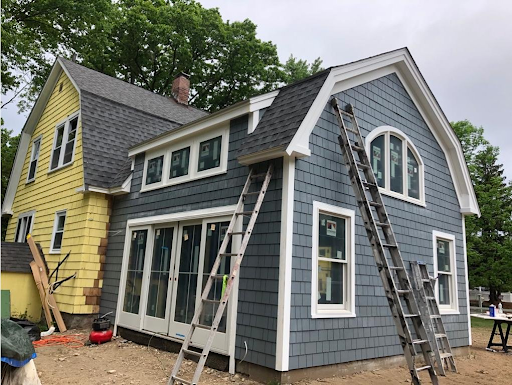Property valuation is a crucial aspect of the real estate market, influencing buying, selling, financing, and investing decisions. As the world evolves, so do the methods and technologies used to determine property values. In case you are looking to “value my property”, understanding the emerging trends in property valuation can help property owners, investors, and real estate professionals stay ahead of the curve. Here are some key trends to watch in the future of property valuation.
1. Technology-Driven Valuation Methods
AI and Machine Learning
- Automated Valuation Models (AVMs): AI and machine learning are transforming property valuation through the development of sophisticated AVMs. These models analyze vast amounts of data, including recent sales, property characteristics, and market trends, to provide instant and accurate property valuations. As these technologies improve, AVMs will become more reliable, reducing the need for traditional, manual appraisals in many cases.
- Predictive Analytics: AI-driven predictive analytics can forecast future property values based on historical data and current market trends. This allows investors and buyers to make more informed decisions about the potential appreciation or depreciation of a property over time.
Big Data Integration
- Comprehensive Data Sources: The integration of big data into property valuation is enabling more accurate and comprehensive assessments. Valuation models are increasingly incorporating data from various sources, including public records, economic indicators, social media sentiment, and environmental factors, to provide a more holistic view of a property’s value.
- Real-Time Data: Access to real-time data allows for more timely valuations, reflecting current market conditions more accurately. This is particularly useful in volatile markets where property values can fluctuate rapidly.
Blockchain Technology
- Transparency and Security: Blockchain technology is being explored as a way to enhance the transparency and security of property transactions. By creating a decentralized and immutable record of property ownership and transaction history, blockchain can reduce fraud and disputes in property valuation processes.
- Smart Contracts: Blockchain can also facilitate the use of smart contracts, which automatically execute and enforce agreements based on pre-set conditions. In property valuation, smart contracts could streamline the appraisal process, ensuring that valuations are accurate and fair.
2. Sustainability and Environmental Considerations
Green Building Valuations
- Increased Value for Eco-Friendly Properties: As sustainability becomes more important to buyers, properties with eco-friendly features, such as energy-efficient appliances, solar panels, and sustainable materials, are likely to command higher valuations. Valuers will need to incorporate these factors into their assessments to accurately reflect the market’s growing preference for green buildings.
- Government Incentives: Government incentives for energy-efficient homes, such as tax credits and grants, can also increase a property’s value. Future valuation methods will need to account for these financial benefits when assessing a property’s worth.
Climate Risk Assessments
- Impact of Climate Change: As climate change impacts become more pronounced, valuers will need to consider climate risks, such as flooding, wildfires, and rising sea levels, when assessing property values. Properties in high-risk areas may see lower valuations due to the increased likelihood of damage and the associated insurance costs.
- Resilience Features: Conversely, properties that are designed to withstand climate-related risks—such as those with flood defenses or fire-resistant materials—may receive higher valuations. This shift in focus towards climate resilience will become increasingly important in property valuation.
3. Changing Consumer Preferences
Remote Work and Lifestyle Shifts
- Suburban and Rural Demand: The rise of remote work has shifted consumer preferences towards suburban and rural areas, where larger homes with outdoor spaces are more common. As a result, property valuations in these areas are expected to increase, while urban property values may stabilize or decline, depending on local demand.
- Home Office Spaces: Properties with dedicated home office spaces or the potential to create them are becoming more valuable. Valuers will need to consider these features when determining property values, particularly as remote work continues to be a significant trend.
Digital and Virtual Tools
- Virtual Property Tours: The use of virtual tours and digital showings has surged, especially during the COVID-19 pandemic. These tools allow buyers and investors to assess properties from anywhere in the world, increasing the demand for properties that are well-represented online. Valuers may need to consider a property’s digital appeal in their assessments.
- Online Valuation Platforms: The rise of online platforms that offer instant property valuations based on user-provided data is making it easier for buyers and sellers to get quick value estimates. These platforms are becoming more sophisticated, integrating with AVMs and offering more accurate valuations.
4. Regulatory Changes and Industry Standards
Enhanced Valuation Standards
- Global Valuation Standards: As real estate markets become more globalized, there is a push towards standardizing valuation practices across different countries. Organizations like the International Valuation Standards Council (IVSC) are working to establish global standards, which will make it easier to compare property values across borders.
- Regulatory Compliance: Stricter regulations and compliance requirements are being introduced in many regions to ensure transparency and accuracy in property valuations. Valuers will need to stay updated on these regulations to ensure their assessments meet legal and industry standards.
Data Privacy and Security
- Protecting Sensitive Information: With the increasing reliance on digital tools and big data in property valuation, data privacy and security have become critical concerns. Future valuation processes will need to comply with data protection regulations, such as GDPR in Europe, to ensure that sensitive information is handled securely.
- Consumer Trust: Building and maintaining consumer trust will be essential as more valuation processes move online. Valuation firms will need to demonstrate their commitment to data privacy and security to attract and retain clients.
5. Emerging Markets and Investment Opportunities
Growth in Emerging Markets
- Investment in Developing Regions: As global real estate investors seek higher returns, there is growing interest in emerging markets where property values are still relatively low but have significant growth potential. Understanding local valuation practices and market dynamics in these regions will be crucial for investors.
- Infrastructure Development: Emerging markets with significant infrastructure development projects, such as new transportation networks or commercial hubs, are likely to see rapid increases in property values. Valuers will need to account for these future developments in their assessments.
Alternative Property Investments
- Co-Living and Co-Working Spaces: The rise of co-living and co-working spaces offers new investment opportunities. These alternative property types require unique valuation approaches that consider factors like occupancy rates, shared amenities, and community engagement.
- Fractional Ownership and REITs: Fractional ownership models and real estate investment trusts (REITs) are becoming more popular, allowing smaller investors to buy into high-value properties. Valuation methods will need to adapt to these new ownership structures, ensuring that valuations reflect the true value of fractional shares or REIT units.
Conclusion
The future of property valuation is being shaped by technological advancements, changing consumer preferences, sustainability concerns, and evolving regulatory frameworks. As these trends continue to develop, property valuation practices will need to adapt to provide accurate, reliable, and comprehensive assessments. For property owners, investors, and real estate professionals, staying informed about these trends will be key to making informed decisions and maximizing returns in an increasingly complex and dynamic real estate market.











